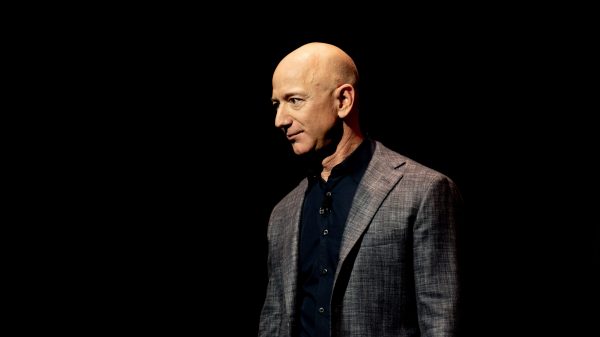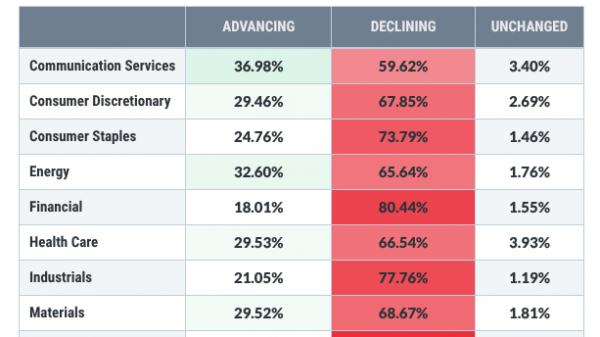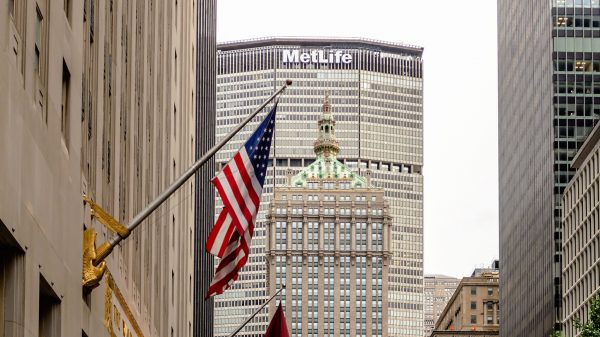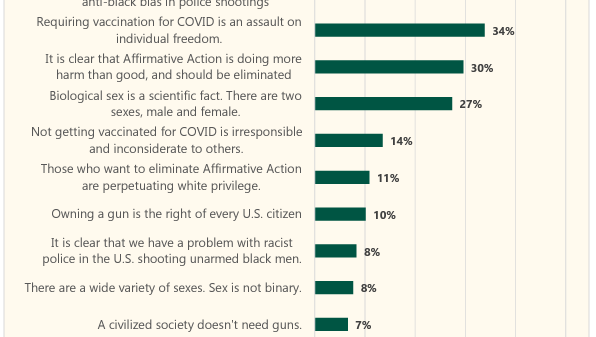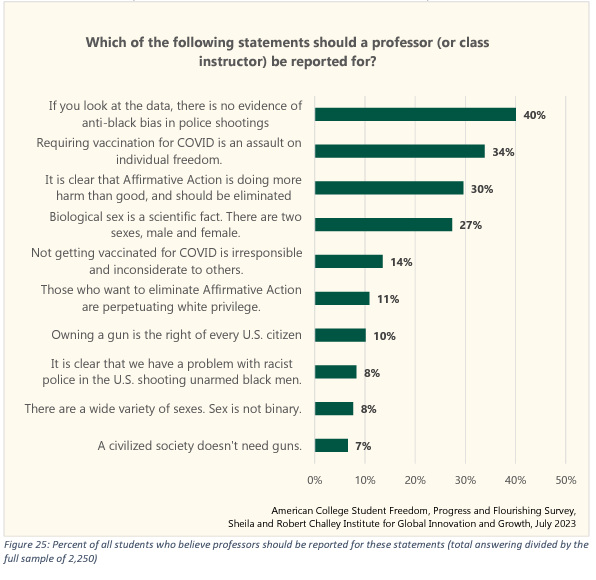Last year, the American College Student Freedom, Progress, and Flourishing Survey polled 2,250 undergraduate students from 131 colleges across the United States in order to understand the state of free speech and viewpoint diversity on college campuses. They found some bleak trends. Fully 40 percent of students surveyed believed that a professor should be reported to the administration for saying that “If you look at the data, there is no evidence of anti-black bias in police shootings.” 27 percent of students said a professor should be reported for saying that there are only two sexes. On issue after issue, students (especially leftist students) wanted professors sanctioned or punished for deviating from approved leftist orthodoxy.
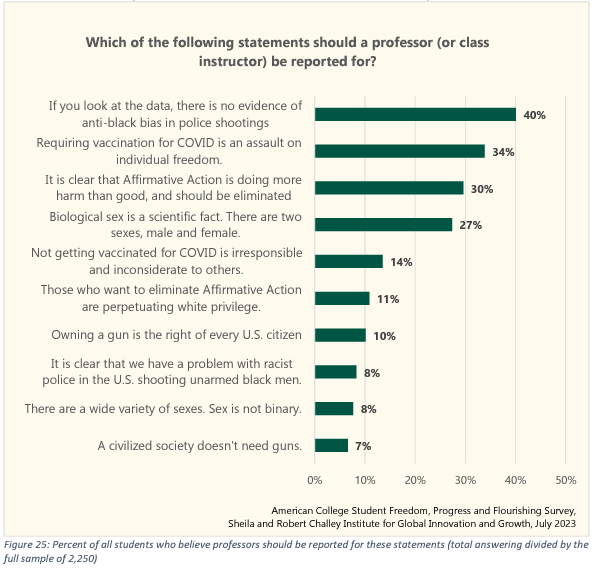
What’s going on here? This isn’t just an issue with leftist intolerance, or with young people not yet understanding the value of free speech and viewpoint diversity. Instead, the fact that so many young people have trouble hearing views that they disagree with reflects a huge problem with how we as a society are raising the next generation.
In The Coddling of the American Mind, social psychologist Jonathan Haidt and president of the Foundation for Individual Rights and Expression Greg Lukianoff describe a pervasive culture of “safetyism.” Safetyism is the idea that safety, especially emotional safety, is all that matters when it comes to raising young people.
Safetyism can be seen in a piece in Parenting magazine that warned that you should never leave your child and their school-age friends alone for even a moment, because what if one of them says something that upsets the other’s feelings? It can be seen in neighbors who call the police when they see a child playing unsupervised in the park, and in the police who then show up and (sometimes) arrest the parent for negligence. It can be seen in the playgrounds that are so bereft of thrills that they seem more fitting for toddlers than for older children.
Haidt and Lukianoff make a powerful case that safetyism is making the next generation emotionally fragile. When we never give children the opportunity to take risks, get into conflict, and deal with bruises (both physical and emotional), they never learn how strong they truly are. They don’t develop emotional resilience. As a result, they go to college and the exposure to new ideas feels dangerous and threatening.
As Lenore Skenazy, co-founder of Let Grow (a nonprofit dedicated to promoting childhood independence) told me, “We believe that when kids grow up knowing that being a little distressed or a little scared isn’t the end of the world, it’s easier for them to become engaged with people and ideas that are new to them as well, because they’re excited as opposed to afraid.”
Unfortunately, the reverse is also true. When we as a society try to protect children from every bump and owie, we accidentally teach them to approach new ideas and perspectives from a place of fear, because they’ve never been given the opportunity to learn that they can handle a little bit of distress.
The culture of safetyism that Haidt and Lukianoff describe is bad for our country’s future. Democracy is naturally rough-and-tumble; it requires citizens who are willing to hear ideas they disagree with, who are able to accept that they won’t always get their way in elections, and who prioritize liberty just a little bit more than they prioritize an ever-present nanny state hovering over them to protect them from every possible negative outcome.
But safetyism is also bad for the young people themselves. This is something that I call Adorney’s Trident. If you’re raised to believe that viewpoints that don’t align with your own represent a genuine threat to your safety, then you have three options:
1) Move to a country that doesn’t have a First Amendment (or, try to turn the United States into such a country).
2) Develop the necessary emotional resilience to hear people disagree with you without feeling threatened or like the world is ending.
3) Suffer endlessly because it feels like at least half the country not only disagrees with you, but is an active threat. This can contribute to fear and paranoia.
Right now, a lot of young people are choosing option three. It is better for them, and for society as a whole, if we can help them to choose option two instead.
So how can we help them?
Parents can help their children by trusting them with some freedom and responsibility. Skenazy recommends that schools adopt the Let Grow Experience. Teachers give their students the simple homework assignment: Go home and do something new, on your own, WITH your parents’ permission, but WITHOUT your parents. For instance: Go to the grocery, climb a tree, walk to school, make the family breakfast…. As Skenazy says, “The only thing that can change a parent is their own kid. Not me. Not statistics or brilliant articles. It’s only when the parent sees their kid do something on their own that they change.” Once parents see their child’s strength and resilience and wisdom — or even that their kid can survive a bit of confusion or disappointment — they are so proud that this rewires them. They become far more likely to give their child more independence in the future. It’s essentially exposure therapy for both generations.
What about young people who have already flown the nest? In these cases, we as a society need to help them to develop the emotional resilience necessary to navigate life in a republic (as well as life in general). One way to do this is to help them to find their true identity. Our true identity is the deepest and most essential essence of ourselves. It is the part of us that was knit together in our mother’s womb, and that will still remain with us until our dying breath. It can never be taken away from us or hurt by another person. When we truly understand our true identity, we can live the wisdom of Dietrich Bonhoeffer, who wrote of our enemies that “Their curse can do us no harm.”
Building emotional resilience is essential to being a good member of a republic, as well as to living any kind of good life. So many young people have been deprived of the opportunity to cultivate this essential virtue. But it’s never too late. Skenazy told me that, “More exposure to the world means that kids are less likely to mistake feeling uncomfortable for literally being unsafe.” Helping young people make that essential distinction is good for them.
It’s also essential to the long-term health of our republic. If we don’t help young people develop a robust respect and appreciation for the benefits of free speech, then we run the risk of losing our right to speak freely in years to come. We run the risk of going down the same dark road as the United Kingdom, a once-beacon of freedom where people can now be jailed for Facebook posts that the government finds offensive. As the police recently explained to one English citizen who made a post mocking trans rights activists, “Someone has been caused anxiety based on your social media post. And that is why you’re getting arrested.”
The best intentions of critics of free speech aside, a lack of free speech doesn’t mean a world in which everyone holds hands and only says nice things to each other. It looks like a world in which ordinary people get thrown behind bars for the crime of making statements with which the ruling powers disagree. If you think free speech is anxiety-provoking, imagine how anxiety-provoking the lack of free speech will turn out to be.




